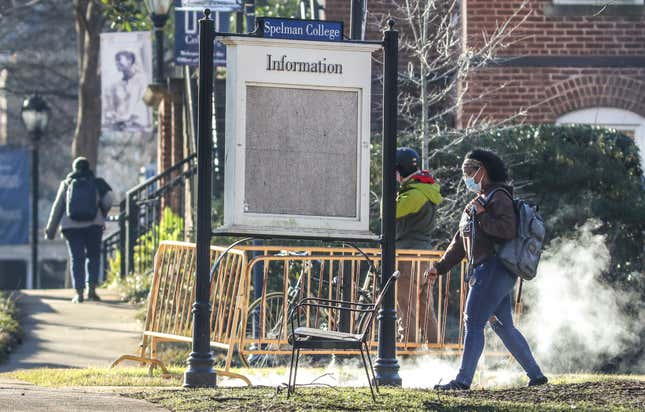
Last week more than 17 HBCUs across the country received bomb threats and as a result, the FBI has now gotten involved. The hate crime investigation now involves more than 20 field offices and has identified at least five persons of interest who are responsible for the threats, according to the Associated Press.
In one of the cases, an anonymous caller claimed to be affiliated with Atomwaffem Division, a neo-Nazi group, described a plot at Bethune-Cookman University involving seven bombs hidden in bags.
From Associated Press:
University campuses are considered “soft targets,” but “they’re not as soft as they used to be,” said Robert McCrie, a professor at the John Jay College of Criminal Justice in New York. Universities have traditionally been easily accessible to the public, but many hardened their security after the Sept. 11, 2001, terror attacks. Now, picture IDs are needed to enter buildings on McCrie’s campus and others, he said.
Though no devices were found at the schools threatened last week, “people of color don’t have that privilege to think it’s not real,” said Lance Wheeler, director of exhibitions at the National Center for Civil and Human Rights in Atlanta.
HBCUs in Arkansas, Delaware, Florida, Georgia, Kentucky, Louisiana, Maryland, Mississippi and other states have since continued on-campus operations since the bomb threats prompted officials to lockdown campuses. But, there is a worry that future threats are imminent, according to the Associated Press.
Reacting to the latest bomb threats, the Congressional Bipartisan HBCU Caucus released a statement that called for a quick response from state and federal law enforcement agencies:
The continued bomb threats against HBCUs are hate crimes that must be prosecuted to the fullest extent of the law. This third round of bomb threats on Historically Black College and University campuses demands a swift response from federal and state law enforcement agencies. It is especially jarring that these threats come during Black History Month when we not only celebrate the immense contributions of Black Americans but also remember the violence so many had to endure to secure civil rights and voting rights.
Indeed, sixty-two years ago today, courageous students at North Carolina A&T State University demonstrated the resolve of HBCU students, faculty, and staff by putting their lives in mortal danger to protest segregation. We know from history that in spite of external threats, HBCUs are resilient institutions that will persist through all forms of adversity.

